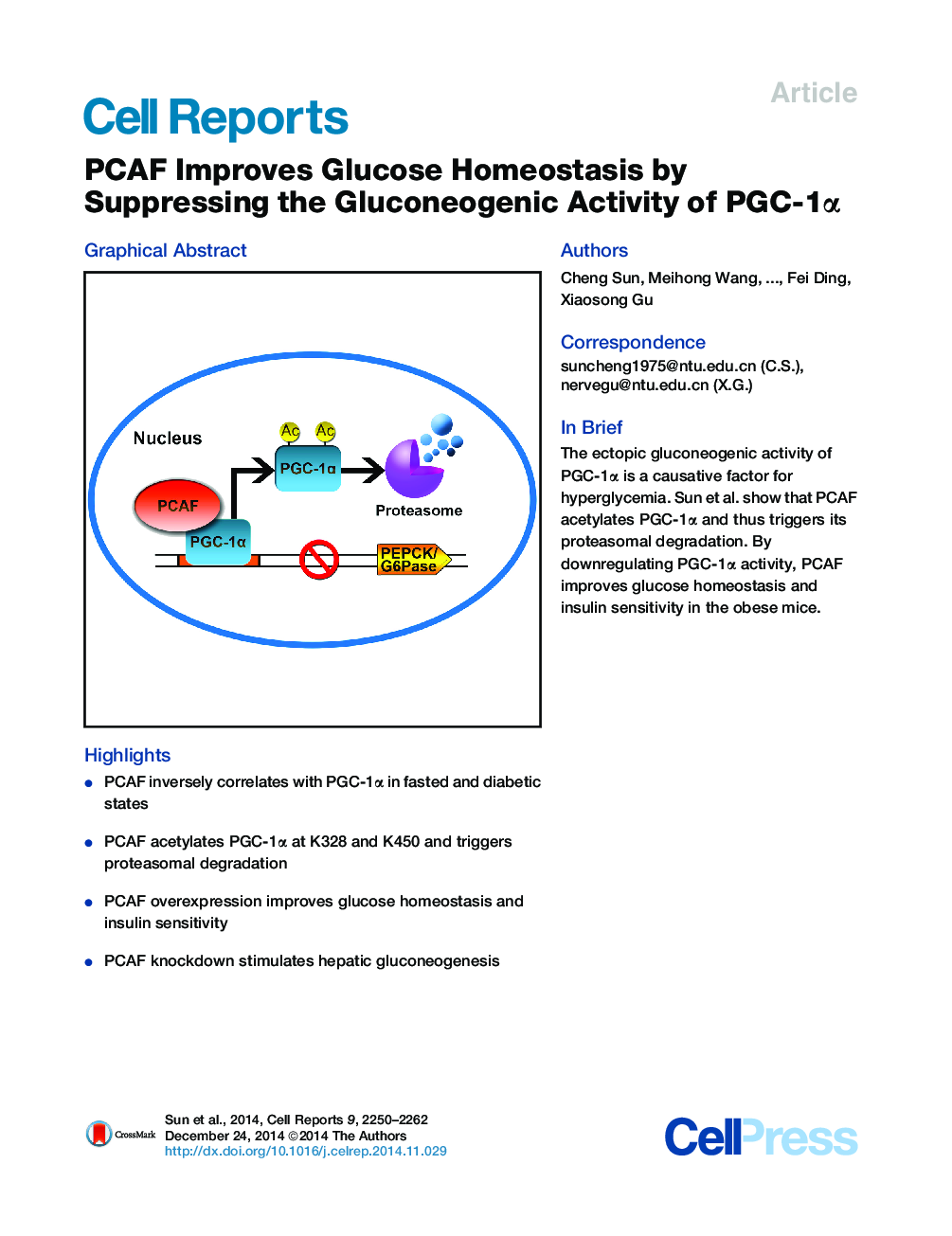| کد مقاله | کد نشریه | سال انتشار | مقاله انگلیسی | نسخه تمام متن |
|---|---|---|---|---|
| 2039655 | 1073073 | 2014 | 13 صفحه PDF | دانلود رایگان |

• PCAF inversely correlates with PGC-1α in fasted and diabetic states
• PCAF acetylates PGC-1α at K328 and K450 and triggers proteasomal degradation
• PCAF overexpression improves glucose homeostasis and insulin sensitivity
• PCAF knockdown stimulates hepatic gluconeogenesis
SummaryPGC-1α plays a central role in hepatic gluconeogenesis and has been implicated in the onset of type 2 diabetes. Acetylation is an important posttranslational modification for regulating the transcriptional activity of PGC-1α. Here, we show that PCAF is a pivotal acetyltransferase for acetylating PGC-1α in both fasted and diabetic states. PCAF acetylates two lysine residues K328 and K450 in PGC-1α, which subsequently triggers its proteasomal degradation and suppresses its transcriptional activity. Adenoviral-mediated expression of PCAF in the obese mouse liver greatly represses gluconeogenic enzyme activation and glucose production and improves glucose homeostasis and insulin sensitivity. Moreover, liver-specific knockdown of PCAF stimulates PGC-1α activity, resulting in an increase in blood glucose and hepatic glucose output. Our results suggest that PCAF might be a potential pharmacological target for developing agents against metabolic disorders associated with hyperglycemia, such as obesity and diabetes.
Graphical AbstractFigure optionsDownload as PowerPoint slide
Journal: - Volume 9, Issue 6, 24 December 2014, Pages 2250–2262